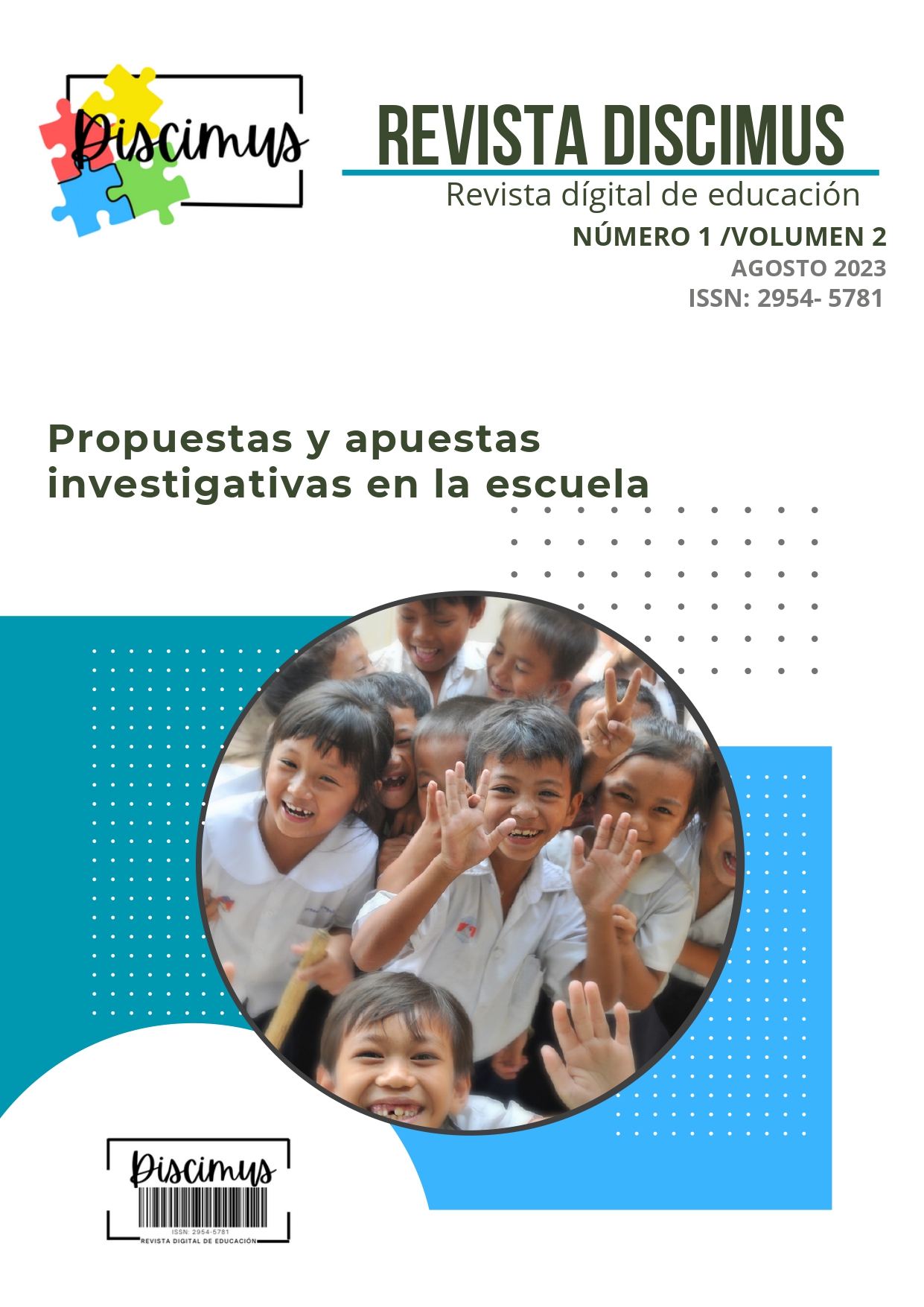Proposal for a didactic planning model for the teaching of chemistry based on the cdc.
Main Article Content
Abstract
Abstract
This research aims to understand and interpret the conceptual development of didactic content knowledge (CDC) and its importance in didactic planning and the use of scientific thinking skills in teaching chemistry. The main objective is to design a didactic planning model based on CDC for chemistry teachers that facilitates the teaching of scientific thinking skills. It highlights the importance of understanding and reflecting on the CDC of teachers to strengthen the teaching process, especially scientific literacy.
To develop this research, the multiple case study was used with three public school teachers in Bogotá. As the same way, The Nvivo 11 software was used for the management of qualitative data. which results indicate that teachers have strengths in the content and articulation of psychopedagogical and contextual knowledge, but they have weaknesses in the expression and management of epistemological and historical aspects of chemical concepts. The importance of scientific thinking skills was identified as an emerging category that mobilizes other skills in the planning and teaching process. Based on the above, it is concluded that teaching chemistry is not limited to presenting content, but rather it is the CDC, an integrating element, capable of mainstreaming the process that is carried out during the exercises of transposition and scientific literacy in the classroom. However, the identification of the CDC categories is delegitimized when they are not integrated or reflected, therefore, it is their use and identification that leads to the design of the classes and didactic creations that manage to transcend those that teachers and students live every day and that will finally achieve the change in the customs of science teaching.
Downloads
Article Details
Section

This work is licensed under a Creative Commons Attribution-NonCommercial-ShareAlike 4.0 International License.
Open Access Policy at Discimus Journal
Discimus Journal is committed to the promotion of free circulation of scientific and academic knowledge, simultaneously ensuring appropriate acknowledgment for our authors while adhering to the ethical principles of scientific publishing. In alignment with this goal, Discimus publishes all its articles under the ATTRIBUTION-NONCOMMERCIAL-SHAREALIKE 4.0 INTERNATIONAL CC BY-NC-SA 4.0
How to Cite
References
Ariza, L. y Parga, D. (2009). Conocimiento didáctico del contenido curricular en la enseñanza de combustión. [Tesis de maestría. Universidad pedagógica nacional]. http://dx.doi.org/10.1016/S0187-893X(18)30113-7
Gómez, A.; Sanmartí, N. y Pujol, R. (2007). Fundamentación teórica y diseño de una unidad didáctica para la enseñanza del modelo ser vivo en la escuela primaria. Enseñanza De Las Ciencias, 25(3), 325-340 https://raco.cat/index.php/Ensenanza/article/view/87930
Hernández, M. y Aguilar, T. (2008). Teoría de la Complejidad y aprendizaje: algunas consideraciones necesarias para la enseñanza y la evaluación. EFdeportes, año. 13, 121 https://www.efdeportes.com/efd121/teoria-de-la-complejidad-y-aprendizaje.htm
Hernández, R. Fernández, C. & Baptista, M. (2006). Metodología De La Investigación. Quinta edición. McGRAW-HILL.
Joyce, B.; Weil, M. y Calhoum, E. (2002). Modelos de enseñanza. GEDISA. http://www.igualdadycalidadcba.gov.ar/SIPEC-CBA/publicaciones/webgrafiapostitulo/FeldmanMIII/Modelos%20de%20ensenanza.pdf
Martínez, N. (2004). Los modelos de enseñanza y la práctica de aula. Universidad de Murcia. 1-19
Parga, D. y Moreno, W. (2017). Conocimiento didáctico del contenido en química orgánica: Estudio de caso de un profesor universitario. Educare, 21(3), 1-21. https://dialnet.unirioja.es/servlet/articulo?codigo=6114891
Ruiz- Pino, D. (2022). Caracterización del conocimiento didáctico del contenido (cdc) de docentes de química y su influencia en la construcción de un modelo de planeación didáctica: un estudio de caso. CIEG, Revista Arbitrada Del Centro De Investigación Y Estudios Gerenciales, 59, 118-135.
https://revista.grupocieg.org/wp-content/uploads/2022/12/Ed.59118-135-Ruiz-Diana.pdf
Sanmartí, N. (2000). Enseñar y aprender Ciencias: algunas reflexiones. Alambique, 1-35. https://www.pedagogiapucv.cl/wp-content/uploads/2017/07/Ensenanza-de-las-Ciencias-Neus-Sanmarti.pdf
Shulman, L. (2005). Conocimiento y enseñanza: fundamentos de la nueva reforma. Universidad de Granada, Profesorado. Revista de currículum y formación del profesorado, 9(2), 1-30. https://www.ugr.es/~recfpro/rev92ART1.pdf
Stake, R. (1999). Investigación con estudio de casos. Segunda edición. EDICIONES MORATA, S. L. https://www.uv.mx/rmipe/files/2017/02/Investigacion-con-estudios-de-caso.pdf
Talanquer, V. (2015). Prologo en D. Parga (Ed.) El conocimiento didáctico del contenido (cdc) en química. Universidad Pedagógica Nacional, 1ra edición. http://repositorio.pedagogica.edu.co/bitstream/handle/20.500.12209/10846/Conocimiento%20didactico-libro-completo.pdf?sequence=1&isAllowed=y

